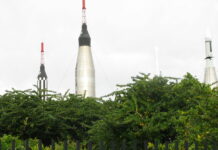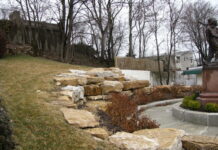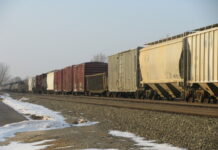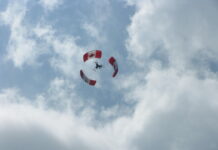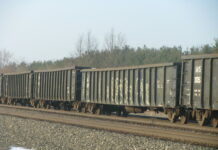Photo credit: DiasporaEngager (www.DiasporaEngager.com).
It is not an easy time to be a South African Jew. The community of around 50,000 is feeling increasingly isolated by a government that is moving closer to the likes of Iran, China, and Russia, and is expressing a one-sided view of the Israeli-Palestinian conflict. In fact, South Africa’s leading party, the African National Congress, has led the charge against Israel at the International Court of Justice.
My government rolled out the red carpet and allowed Hamas leaders to visit the country after October 7, and has a warm relationship with Iran. But most of the Jewish community here has always been, and remains, staunchly Zionistic.
Despite this, some South African Jews are experiencing negativity from Israel and its supporters due to the actions of our government.
For this reason, I recently joined a group of South African Jews on a solidarity mission to Israel. My feelings about these missions are mixed. While they are definitely well-intentioned, I wondered if they are also a little self-indulgent. Is it fair to ask a country dealing with its own horror to host people from outside the country? Is it just voyeurism that motivates these missions?
I could not have been more wrong.
This trip was organized by Jewish National Fund of South Africa (JNF), The South African Zionist Federation (SAZF), and Keren Kayemeth LeIsrael (KKL), and had a dual purpose — to show support to Jews and citizens of Israel, but also to send a message that the South African people are not their government. It needed to be understood that literally millions of South Africans stand alongside Israel, a country facing a war that it did not start.
The mission met with members of the media, with government spokesperson Eylon Levy, and with senior officers running the war campaign. We visited three different army bases and did the South African thing of braaing (barbecue) for the soldiers.
But it was the day spent in the Gaza envelope that gave me some of the perspective that I had been lacking about the events of October 7.
That day was not a terror attack. It was a full-scale invasion. It was meticulously planned and executed. Sixty sites were hit simultaneously, including army bases and police stations. In some cases, the kibbutzim were cut off, making it enormously difficult to reach them. Three thousand Hamas operatives descended on a sleepy area, where rifles were locked in the armories. The brutality and scale of the murders at the Nova Musical Festival added to the chaos and the catastrophe.
From the most senior officer to the person in the street, there is widespread recognition that there was a massive systems failure that resulted in this invasion. Person after person recounted to us their experiences of that day, and the horrors that unfolded.
I asked Keith Isaacson, the man who heads security for the Eshkol region, “What can you do to make residents of the South feel secure, so that they will be able and confident to return and to rebuild?” His answer was not one that I was expecting. He said, “Take away the word ‘feel.’ It is not about feeling secure. It is about being secure. The residents felt secure before October 7. It didn’t help them.” And when I asked about what went wrong, his emotions and language expressed a heaviness that I know will never leave him. A responsibility that he will feel forever.
All of this was made more real by a JNF, SAZF, and KKL memorial service for South Africans who lost their lives on October 7, which brought us closer to Israeli suffering. Set in the beautiful JNF memorial forest, we heard from parents who had lost children and from Aviva Siegel, a South African, who along with her husband were taken hostage. He remains a captive of Hamas.
The horror is overwhelming. But so too is the strength, warmth, and resilience of the Israeli people. In many ways, on the surface, the country appears to be getting on with life — but a few seconds into any conversation, it becomes clear that this is a people who are hurting more than they can express.
Still, from what I saw, it would be a mistake to confuse pain with weakness. There is little doubt that the power of the people will ultimately prevail.
Some people in Israel treated us skeptically because we were South African. But our concerns — and theirs — faded instantly when it was understood that we were there to show support and deliver a message of unity.
I came to Israel to show solidarity with the Jewish people there. But I left knowing that supporters of Israel and Jews around the world are connected and bound, no matter where they live, or what their government believes.
Howard Feldman is a South African media personality, author, columnist, and radio talk show host.
Source of original article: Howard Feldman / Opinion – Algemeiner.com (www.algemeiner.com).
The content of this article does not necessarily reflect the views or opinion of Global Diaspora News (www.GlobalDiasporaNews.com).
To submit your press release: (https://www.GlobalDiasporaNews.com/pr).
To advertise on Global Diaspora News: (www.GlobalDiasporaNews.com/ads).
Sign up to Global Diaspora News newsletter (https://www.GlobalDiasporaNews.com/newsletter/) to start receiving updates and opportunities directly in your email inbox for free.



